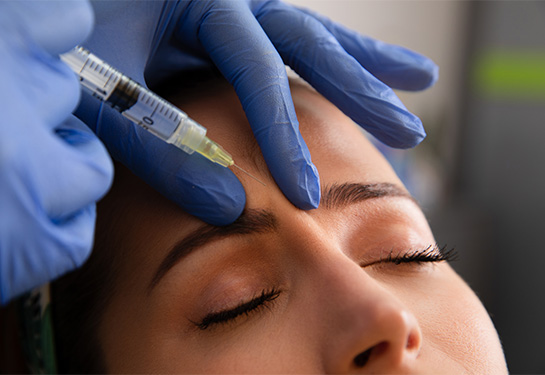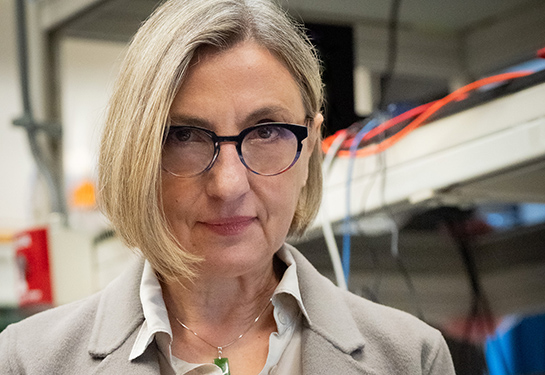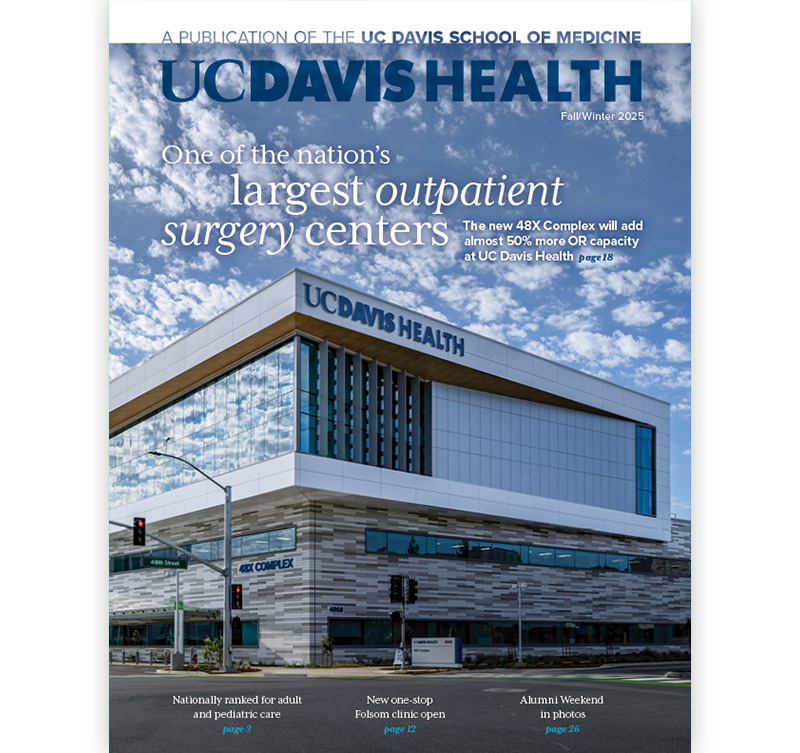Fake Botox sickens people in 9 states, including California
UC Davis Health Dermatologist Oma Agbai explains the proper use and risks of Botox
The Centers for Disease Control and Prevention (CDC) is warning consumers about counterfeit versions of Botox found in multiple states — including California. The popular cosmetics product is used to reduce the appearance of wrinkles.
Fake or mishandled Botox has caused serious reactions in people who received injections in nonmedical, unlicensed settings. To date, 15 people in nine states, including two in California, have reported harmful reactions after receiving injections of counterfeit products. Overall, 11 people were hospitalized and six were treated with botulism antitoxin, an antidote that can halt damage to the body.
In this Q&A, UC Davis Health board-certified dermatologist Oma Agbai discusses Botox, its proper use and the risks of counterfeit products.

What is Botox?
Botox is a brand name produced by the pharmaceutical company Allergan. It is a toxin made by the bacterium Clostridium botulinum. It is commonly used to temporarily reduce wrinkles by paralyzing facial muscles. The toxin works by blocking signals from the nerves to the muscles, preventing them from contracting, thus softening wrinkles on the skin's surface.
What is Botox used for?
Botox is primarily used for cosmetic purposes to reduce the appearance of facial wrinkles, such as crow's feet, frown lines and forehead furrows. It also has medical applications, including treating conditions like chronic migraines, excessive sweating (hyperhidrosis) and muscle spasms.
How do consumers know they are getting authentic Botox?
To ensure they receive authentic Botox, consumers should seek treatment from reputable medical professionals. These experts are board-certified dermatologists or plastic surgeons who purchase directly from Allergan. Patients can also verify the product’s authenticity by checking the packaging, labels and lot numbers (see below).
When considering cosmetic procedures, patients should take an active role in advocating for their own safety.” —Oma Agbai, board-certified dermatologist
What is botulism or Botox poisoning?
Botulism, or Botox poisoning, occurs when the toxin spreads beyond the injection site and affects other areas of the body. Symptoms may include:
- muscle weakness
- vision problems
- difficulty speaking or swallowing
- breathing difficulty
In severe cases, botulism can be life-threatening and requires immediate medical attention.
What are the symptoms of counterfeit Botox?
Several patients have been hospitalized with symptoms consistent with botulism following suspected injections of counterfeit Botox. These cases highlight the dangers of receiving unauthorized or counterfeit cosmetic treatments and emphasize the importance of seeking treatment from board-certified skin doctors or plastic surgeons using authentic products. The CDC is currently investigating these hospitalizations, which occurred after injections that took place in nonmedical settings, which may include homes or cosmetic spas.
What are the side effects of Botox treatment?
Common side effects of Botox injections include temporary bruising, swelling, redness and pain at the injection site. Some people may experience headaches or flu-like symptoms shortly after treatment. In rare cases, more serious side effects include drooping eyelids, muscle weakness, or allergic reactions and should be reported to a doctor.
What should people do if they were injected with counterfeit Botox?
If someone suspects they have been injected with counterfeit Botox, they should seek medical attention immediately. It's essential to document any symptoms and contact both the provider who gave the injection and local health authorities to report the incident.
Where can people safely get Botox injections?
Botox injections can be safely performed under the supervision of a board-certified dermatologist or plastic surgeon in a medical setting. Choosing a reputable provider who follows proper safety protocols and uses authentic Botox products is critical to ensure the best results and minimize potential risks. In nonmedical settings, such as cosmetic spas or in clinics where medical personnel are operating outside their scope of expertise to administer Botox injections, there is a higher risk of adverse effects and complications. When considering cosmetic procedures, patients should take an active role in advocating for their own safety.
Should people get injections at Botox parties?
Botox parties are social events where people gather to receive Botox injections in a relaxed, nonmedical setting. They are often hosted at someone's home or a social venue. While these events may seem convenient and fun, they raise concerns about safety. They may lack proper medical supervision and sterile conditions, increasing the risk of complications or receiving counterfeit products.
The outer carton or packaging:
- Displays the active ingredient as “Botulinum Toxin Type A”
- Indicates 150-unit doses
- Contains lot number C3709C3
- Includes a language that is not English.
The vial:
- Indicates 150-unit doses
- Contains lot number C3709C3
Consumers should report suspected counterfeit Botox products through the FDA’s website or by calling 800-551-3989. Suspected counterfeit Botox products in California can be reported to CDPH at Consumer Complaints.








